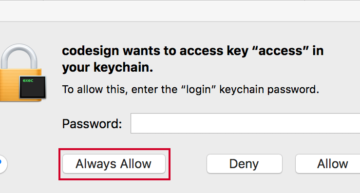Why your business should invest in semantic search
Quick Summary of Contents
Search is a forever changing beast of algorithms, tips, tricks and fads all to obtain the “holy grail” page one search rankings and traffic to boost one’s business.
For local business owners, search has definitely been taking many zigs and zags with the dismissal of Google Authorship, increased focus on Mobile search, and now semantic search with Google Hummingbird.
All of the above mentioned concepts have directly and indirectly impacted the SEO efforts of local business owners.
For local business owners seeking to gain ground in local and mobile search, it’s best to ensure that your website’s design and architecture is one that is responsive, both search- and user-friendly, to the variety of devices viewing your website.
Responsive design and architecture is only a start in addition to creating a sound content marketing strategy that engages and educates your customers.
One SEO area that’s worth mentioning for local business owner’s to focus on is semantic search.
Why should I care about semantic search?
Personally, it’s my belief that semantic search is an area where local business owners fail to understand the importance of their website being semantically optimized for search.
It’s important for your website to rank for the intent and contextual meaning that the user is in search of. We’ll start with a simple and light example to show a user’s explicitly intent in what he or she states they’re looking for, and their content.
Semantic search example
For example, let’s say your business is carpeting installation.
When a user enters the phrase “clean carpet”, it does your business no good to be ranking well for such terms because your business focus is on carpet installation, and vice versa.
We’ll take the search one step further to include a city name of “Austin”. So now your search is “clean carpet austin”. If your business ranks on page one for this term, then great!
But what if your Austin, Texas based business ranked on page one for Austin, Pennsylvania and not Austin, Texas. Then you’re up a SEO creek without a ranking paddle.
With the release of Hummingbird, search engines are very much becoming authentic learning machines in every way we can think of. But back to the example.
How do I make my website semantic search friendly for search engines?
So, how does a local business owner remedy ranking for the wrong city and not ranking for their local market? Easy, implement semantic markup using Schema.org.
Using Schema.org will assist your website in creating content context and co-occurence will enrich your website making it more easily understood by search engines when being crawled and index.
I encourage you to learn more about Schema.org, and how you can use the various “types” to distinguish and boost your website’s search rankings.
Final thoughts on semantic search for local business SEO
Again, this is a simple example and does not include nor account for all of the ranking factors and complexities search engines use to effectively rank websites.
However, this is great example to indicate why local business owners should use Schema.org to markup their websites accordingly so that search engines can better categorize and organize their website for optimal search rankings.












